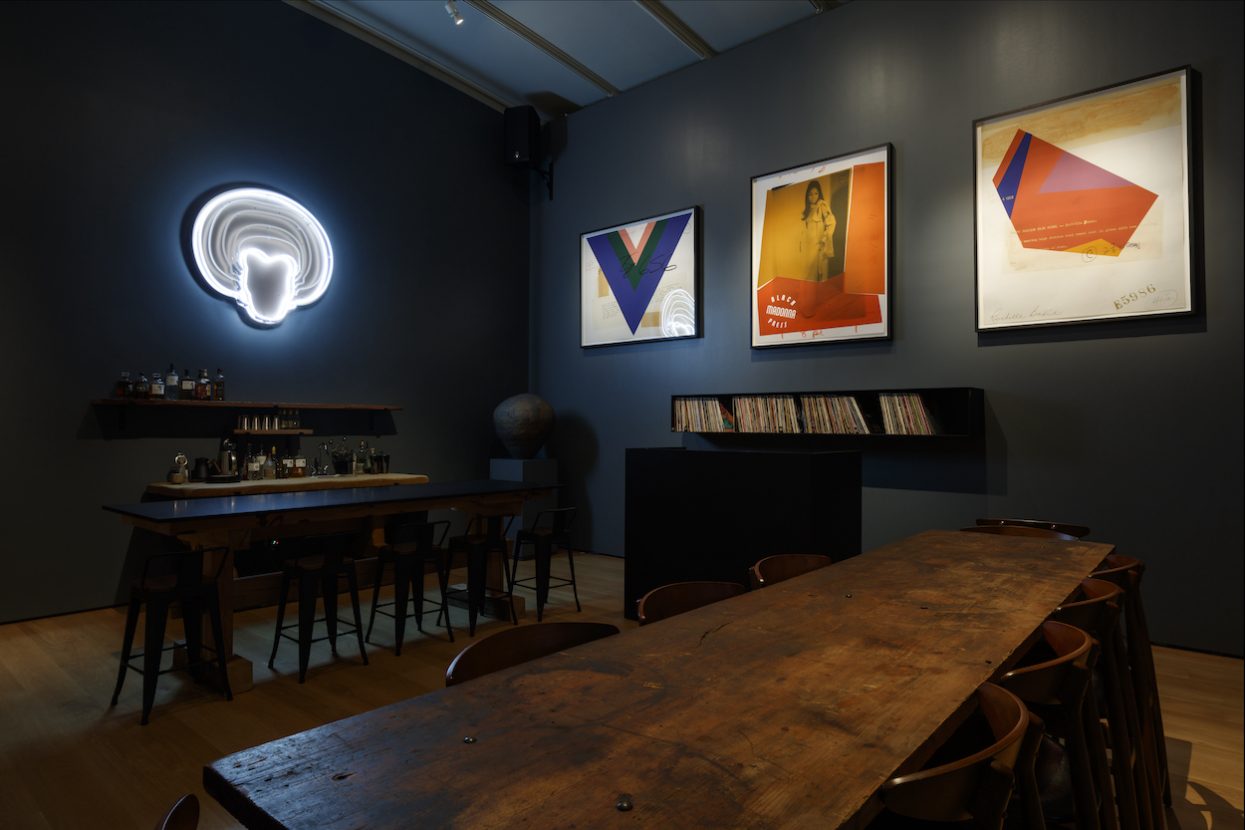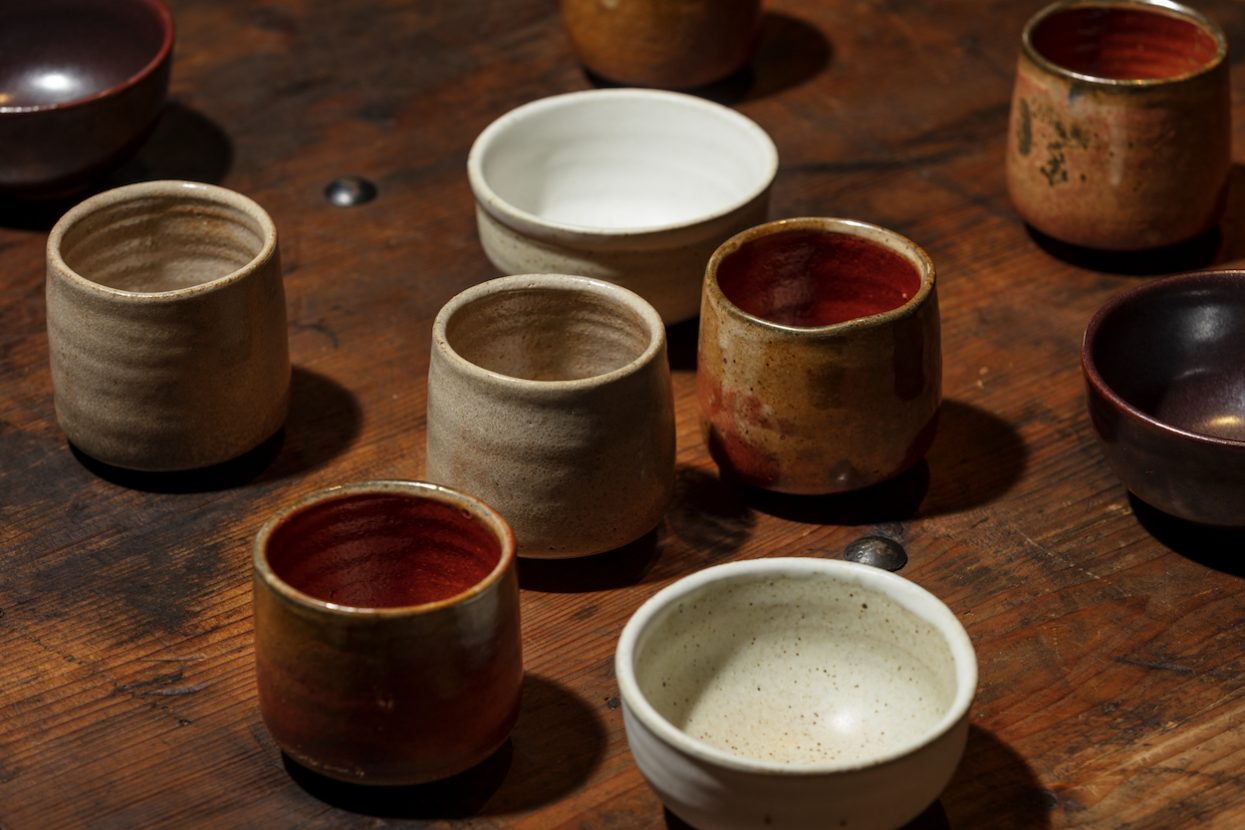Japanese traditions have long influenced Theaster Gates, the civic-minded artist whose Rebuild Foundation has launched a variety of urban improvement projects in Chicago’s South Side. In 2019, he plumbed the intersection between the country’s philosophy and Black culture through sculptural assemblages at London’s White Cube. This past summer, at the Aichi Triennale, he transformed a former earthenware pipe factory in Japan’s once-booming ceramics hub of Tokoname into The Listening House, a space for creative exchange. It was a full-circle moment for Gates, who partook in a ceramics residency there in 2004.
His latest foray into this cultural binary lands at the Nasher Sculpture Center, where he transformed a gallery into Afro Mingei, a convivial gathering space that combines the culinary traditions of Japan and the African American South. On the menu are small plates such as cornmeal dumplings with shiitake leek broth and kabocha squash served on ceramic wares made by his design studio Dorchester Industries, which also fabricated the salvaged wood bar. Afterward, guests can revel with Japanese whiskey set to the tune of 1,000 vinyl records from Gates’s collection of soul and R&B music.
Gates intends Afro Mingei—named after the celebrated Black hairstyle and the Japanese term for honoring everyday objects—as an environment of intimacy and cultural pluralism, as well as a platform for chefs, poets, and musicians of color. “So often, as I consider my history with ceramics and craft, I feel as if other hands are guiding my hands,” Gates tells Surface. “Afro Mingei is a gesture within my artistic practice that acknowledges the cultural transmissions imparted to me. [It’s] as much a question about influence, appropriation, citation, and labor as it is a forum where I can demonstrate what’s possible when great cultures mix and remix.”


